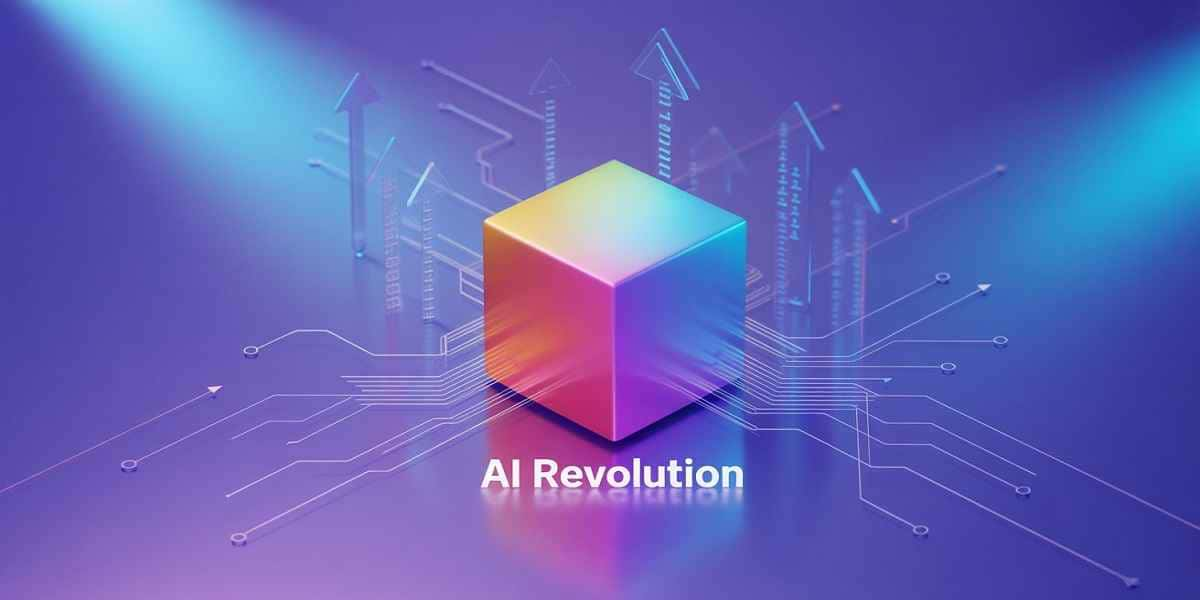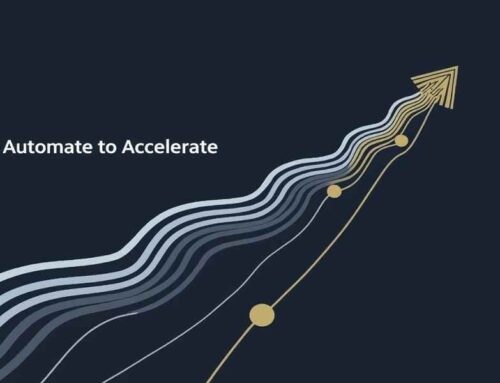
Is Your Business Ready for the AI Revolution?
What if you could slash operational costs by 40%, boost customer satisfaction overnight and predict market trends before they happen? Sounds like science fiction? It’s not. The AI revolution is here, reshaping how companies operate, compete and grow.
From startups to Fortune 500 giants, businesses are embracing smart automation to unlock efficiency, creativity and scalability. But are you keeping up? Or are you watching from the sidelines, unsure how to take the leap?
This isn’t just about staying relevant. It’s about survival. Companies that ignore the AI revolution risk becoming obsolete while competitors leverage machine learning, robotics and data analytics to dominate industries.
The question isn’t if you should adopt smart automation, it’s how fast. Let’s break down why this shift matters and how your business can thrive in an era where artificial intelligence isn’t a luxury but a necessity.
Smarter Operations: How AI Boosts Efficiency
Imagine a factory where machines self-diagnose errors, a retail store that restocks shelves autonomously or a call center where chatbots handle 80% of customer queries. This isn’t a utopian fantasy, it’s happening today.
Smart automation eliminates repetitive tasks, reduces human error and frees employees to focus on strategic work.
Take Siemens, for example. By integrating AI-driven predictive maintenance, they cut downtime by 30% and saved millions annually. Or consider Amazon, which uses robotics in warehouses to optimize inventory management, ensuring packages reach customers faster than ever.
These aren’t outliers. A McKinsey study found that automation could boost global productivity by up to 1.4% annually.
But how do you start? Begin by identifying repetitive processes in your workflow. Is your team drowning in spreadsheets? AI tools like QuickBooks or Xero automate accounting.
Are customer service reps bogged down by FAQs? Deploy a chatbot trained on your data. The goal isn’t to replace humans, it’s to amplify their capabilities.
Ask yourself: What tasks in your business could be done faster, cheaper and smarter with AI?
Customer Experience Reimagined
Customers today demand speed, personalization and 24/7 support. Can your team deliver that? Smart automation can. AI analyzes vast amounts of data to understand customer behavior, enabling hyper-targeted marketing and tailored recommendations.
Netflix’s recommendation engine, powered by machine learning, drives 80% of content watched on the platform. Spotify’s AI-curated playlists keep users engaged for hours. In retail, Sephora’s Virtual Artist uses augmented reality to let customers try makeup digitally, blending AI with creativity.
Chatbots and virtual assistants are another game-changer. Brands like Bank of America (With its AI assistant Erica) and H&M (Via Kik chatbot) offer instant support, resolving queries without human intervention. The result? Higher satisfaction scores and lower operational costs.
Here’s the kicker: Customers don’t just want convenience, they expect it. If your competitors are using AI to anticipate needs and yours aren’t, you’ll lose ground. Fast.
Pro Tip: Start small. Use AI to personalize email campaigns or analyze customer feedback. Tools like HubSpot and Mailchimp integrate AI to optimize engagement.
Data-Driven Decisions: The New Competitive Edge
In the AI revolution, data is the new oil. But raw data is useless without insights. AI transforms numbers into actionable strategies. Predictive analytics, for instance, helps retailers forecast demand, while sentiment analysis deciphers social media trends.
Consider Starbucks. Its AI system analyzes customer preferences and weather patterns to recommend drinks, driving a 20% increase in sales. Or John Deere, which uses machine learning to help farmers optimize crop yields. These companies aren’t just reacting to trends, they’re shaping them.
For smaller businesses, cloud-based AI platforms like Google Cloud AutoML or IBM Watson offer affordable access to advanced analytics. No PhD in data science required.
Pause and Reflect: Are you making decisions based on gut instincts or data? The AI revolution rewards those who let algorithms guide their choices.
Real-World Success Stories
Still skeptical? Meet Zara. The fashion giant uses AI to analyze sales data and adjust designs in real time, slashing production cycles from weeks to days. Or UPS, which optimized delivery routes using AI, saving 10 million gallons of fuel annually.
Even healthcare is evolving. Babylon Health uses AI to diagnose symptoms via an app, reducing wait times and costs. Meanwhile, Salesforce ’s Einstein AI automates lead scoring, helping sales teams prioritize high-value prospects.
These aren’t tech companies, they’re traditional businesses that adapted. Their secret? Viewing the AI revolution as an opportunity, not a threat.
Quote to Remember: “AI is the new electricity. Just as electricity transformed almost everything 100 years ago, today I feel AI will transform almost every industry.” – Andrew Ng, Co-founder of Google Brain.
Overcoming Challenges: Ethics, Jobs and Costs
The AI revolution isn’t without hurdles. Concerns about job displacement, data privacy and ethical AI use loom large. Employees fear replacement; consumers worry about surveillance.
The solution? Transparency and reskilling. Companies like Accenture invest in upskilling programs to prepare workers for AI-driven roles. Ethical frameworks, such as Microsoft’s AI Principles, emphasize fairness and accountability.
Costs are another barrier. But consider this: The average ROI on AI projects is 17%. Startups like UiPath offer free RPA tools to democratize access. The AI revolution isn’t just for deep pockets, it’s for innovators.
Food for Thought: Will AI take jobs or create new ones? History shows that technology disrupts but also generates opportunities. The key is adaptability.
The Future is Now: Preparing Your Business
The AI revolution isn’t waiting. By 2030, AI could contribute $15.7 trillion to the global economy. To stay ahead, businesses must:
- Invest in Talent: Hire data scientists or partner with AI vendors.
- Start Small: Pilot projects before scaling.
- Focus on Ethics: Prioritize transparency and bias mitigation.
- Embrace Change: Foster a culture open to experimentation.
Quote to Inspire: “The AI revolution will not be televised. It will be coded, tested, iterated and deployed quietly by those bold enough to act.” –Sundar Pichai, CEO of Alphabet.
Your Move: Join the AI Revolution Today
The AI revolution isn’t a distant future. It’s happening in boardrooms, factories and apps right now. Whether you’re a solopreneur or a CEO, smart automation offers tools to innovate, compete and thrive.
Don’t wait until your competitors leave you behind. Start by auditing your workflow, exploring AI tools and educating your team. The journey might seem daunting, but remember, every revolution rewards the bold.
Call to Action: Ready to take the first step? Explore AI solutions for your business, share your thoughts in the comments. The future isn’t coming, it’s already here.
Will you lead the AI revolution… or let it pass you by?
FAQs: AI Revolution and Smart Automation
Q1: What exactly is the AI Revolution and why does it matter for businesses?
A1: The AI Revolution refers to the rapid integration of artificial intelligence into industries, transforming how businesses operate, make decisions and interact with customers. It matters because companies leveraging AI-driven tools like smart automation gain a competitive edge through cost savings, efficiency and innovation. For example, AI enables predictive analytics, personalized marketing and automated workflows, critical for staying relevant in today’s fast-paced market.
Q2: How can small businesses adopt smart automation without high costs?
A2: Smart automation isn’t exclusive to big corporations. Affordable tools like chatbots (Example, Tidio), AI-powered accounting software (QuickBooks) and customer relationship management systems (HubSpot) allow small businesses to automate repetitive tasks. Start with pilot projects, like automating social media scheduling or customer support and scale as you see ROI. Cloud-based platforms like Google Cloud AutoML also offer budget-friendly AI solutions.
Q3: Will AI replace human jobs?
A3: While AI automates repetitive tasks, it complements human creativity and decision-making rather than replacing it. For instance, AI handles data entry, freeing employees to focus on strategy. Companies like Accenture invest in reskilling programs to prepare workers for AI-driven roles. The key is adaptability: new jobs in AI management, ethics and innovation will emerge, balancing displacement in certain sectors.
Q4: What are the biggest risks of adopting AI in business?
A4: Risks include ethical concerns (Example, Biased Algorithms), data privacy issues and over-reliance on technology. For example, poorly trained AI models might reinforce existing biases in hiring or lending. To mitigate this, prioritize transparency, audit AI systems for fairness and adhere to regulations like GDPR. Partnering with ethical AI vendors and investing in employee training can also reduce risks.
Q5: Can AI improve customer service without losing the “Human Touch”?
A5: Absolutely. AI enhances customer service by handling routine queries (Example, Order Tracking) via chatbots, allowing human agents to tackle complex issues. Brands like Bank of America use AI assistants (Erica) to resolve 80% of simple requests, while humans focus on empathy-driven interactions. Tools like sentiment analysis also help personalize responses, ensuring customers feel heard and valued.
Q6: How do I measure the success of AI implementation in my business?
A6: Track metrics aligned with your goals:
- Cost savings: Reduced operational expenses (Siemens saved millions via predictive maintenance).
- Efficiency gains: Faster task completion (Amazon’s AI-driven warehouse robots).
- Customer satisfaction: Improved response times or higher Net Promoter Scores (NPS).
- Revenue growth: Increased sales from AI-powered recommendations (Netflix’s 80% content engagement).
Q7: What industries benefit most from smart automation?
A7: Every sector can benefit, but industries with repetitive processes or data-heavy workflows thrive. Examples include:
- Manufacturing: Predictive maintenance (Siemens).
- Retail: Inventory optimization (Amazon).
- Healthcare: AI diagnostics (Babylon Health).
- Finance: Fraud detection (JPMorgan Chase’s COIN platform).
- Logistics: Route optimization (UPS’s AI-powered delivery systems).
Q8: How do I start implementing AI in my business?
A8: Follow these steps:
- Identify pain points: Automate repetitive tasks (Examples, Invoicing, Customer FAQs).
- Choose the right tools: Use platforms like UiPath (Robotic Process Automation) or Salesforce Einstein.
- Pilot and scale: Test AI solutions in one department before full rollout.
- Train your team: Upskill employees to work alongside AI.
- Monitor ethics: Ensure transparency and fairness in AI decisions.
Q9: What’s the difference between AI and smart automation?
A9: AI refers to machines mimicking human intelligence (Examples, Learning, Problem-Solving), while smart automation applies AI to automate tasks. For example, AI analyzes data to predict trends and smart automation uses those insights to trigger actions (Example, Adjusting inventory levels in real time). Together, they drive efficiency and innovation.
Q10: How will AI shape the future of work?
A10: AI will redefine roles, emphasizing skills like critical thinking, creativity and emotional intelligence. Routine jobs may decline, but demand for AI specialists, data analysts and ethical compliance officers will rise. As Andrew Ng said, “AI is the new electricity, it will transform every industry.” Businesses that embrace this shift will lead the next era of innovation.
Tags: AI Revolution Smart Automation Business Innovation AI Ethics Future of Work Data-Driven Decisions Tech Trends Automation Benefits AI Implementation
Categories
- Business Growth Strategies (143)
- Customer Experience and Retention (23)
- Digital Marketing and SEO (29)
- Financial Planning and Investment (26)
- Leadership and Team Management (28)
- Personal Development and Productivity (71)
- Technology and Innovations (52)
- USA Biz Growth (1)
Subscribe To Our Newsletter













